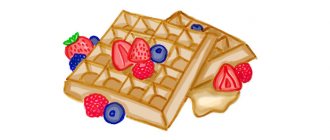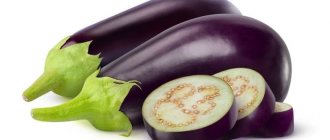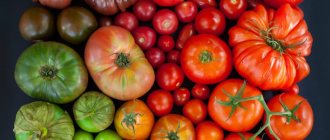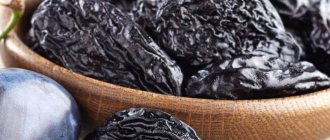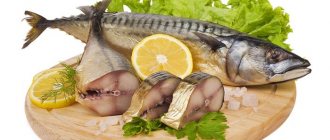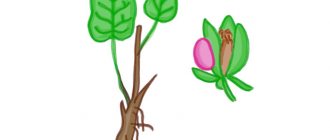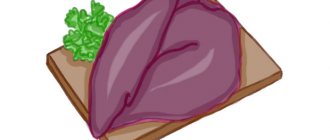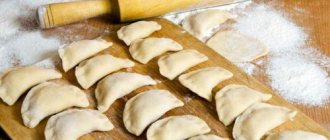Bananas during breastfeeding help mothers cope with postpartum depression and contribute to the harmonious development of the baby's body. The amino acid tryptophan contained in the fruit strengthens the baby’s nervous system, and B vitamins prevent anemia. Dietary fiber normalizes intestinal function. Original desserts, salads, and cereals are prepared from bananas. Traditional medicine uses the fruit for bronchitis, wrinkles, bruises, and warts.
Can a nursing mother eat bananas? The fruits are recommended for consumption; they rarely cause allergies. During lactation, bananas are administered in small portions in the first month after birth. In the absence of negative symptoms, the amount is increased to one fruit per day.
The expert worked on the article:
Gagarina Svetlana Vyacheslavovna
Author of the article Education: Moscow Medical Academy named after. Sechenov. Professor, Doctor of Science, mammologist, surgical specialist: gynecology, oncology, pediatric and aesthetic surgery.
The information on the site is provided for informational purposes only. Don't self-medicate! Consult your doctor for advice.
Composition, calorie content and varieties
100 g of pulp contains:
- proteins - 1.5 g;
- fats - 0.1 g;
- carbohydrates - 21.8 g;
- dietary fiber - 1.7 g;
- potassium - 42 mg;
- magnesium - 350 mg.
Manganese, tryptophan, zinc, selenium, iron, and fluorine are also present.
The amount of vitamins is presented in the table (per 100 g):
| Name | Weight, mg |
| A | 0,12 |
| IN 1 | 0,04 |
| AT 2 | 0,05 |
| AT 3 | 0,4 |
| AT 9 | 10 mcg |
| WITH | 10 |
| E | 0,4 |
Calorie content depends on the variety:
- a small banana measuring 15-18 cm has approximately 90 kcal;
- an average fruit 18-20 cm long contains 111 kcal;
- large over 20 cm - 160 kcal;
- mini banana less than 15 cm - 72 kcal.
Unripe fruit contains starch. But as it ripens, practically no of it remains in the ripe fruit; the substance is converted into sugar. This fructose is well absorbed by the body.
What are the differences between such fruits and fresh ones?
Dried bananas are just as healthy as fresh ones. During drying, all useful substances are retained in them. The main differences are that dried fruits are much higher in calories. 100 grams of the product contains 390 kcal, while the calorie content of fresh products is only 65.5-111 kcal per 100 grams. In addition, dried fruits contain much more sugar, so you need to use them carefully during breastfeeding.
Read further: is it possible to eat bananas in the first month of breastfeeding, how much of this fruit can you eat in the 2nd and 3rd months of breastfeeding?
Beneficial features
It is recommended to eat banana while breastfeeding due to its potassium content. This substance normalizes blood circulation, eliminates swelling, and delivers oxygen to cells. The component regulates blood pressure and reduces the likelihood of developing cardiovascular pathologies.
Bananas are beneficial for nursing mothers due to the presence of fiber, which promotes active digestion. The element prevents constipation, eliminates bloating in the abdomen, and removes waste products. Plant fibers reduce inflammation and prevent the accumulation of plaques in blood vessels.
Ascorbic acid together with tocopherol block the synthesis of free radicals, preventing tissue aging. These antioxidant substances suppress the development of cancer cells.
Tryptophan fights insomnia, stress, and relieves nightmares. The amino acid improves the condition of the skin and hair. Thanks to its presence in the body, anemia does not develop.
Bananas stimulate the production of oxytocin during breastfeeding. The hormone is responsible for the formation of breast milk in the glands. Once in the baby’s blood, oxytocin helps to create a sense of satisfaction in the baby.
Manganese supports bone strength, skin health, and brain function. The element protects against the effects of free radicals. Due to the positive effect on the skeleton, the risk of developing osteoporosis is reduced.
Possible harm and contraindications
The main contraindication of the exotic fruit is the high-calorie content of the product. If the dosage is not followed, you can not only gain extra pounds, but also lead to a deterioration in the functioning of internal organs due to the accumulation of subcutaneous fat.
When breastfeeding, it is recommended to consume bananas between meals without drinking water. The product takes a long time to digest in the stomach, and therefore is contraindicated for evening snacks.
It is forbidden to introduce bananas into the diet if:
- presence of an allergic reaction;
- diabetes mellitus (green fruits);
- increased blood clotting;
- coronary heart disease;
- obesity.
The product does not combine with cabbage and milk. And when eating unripe bananas, you can destabilize metabolic processes in the body, provoke allergies, and digestive problems.
Allergy to bananas
The sensitivity reaction of an adult organism to fruits is rare. Banana is considered a moderately allergenic product. Its use causes cross-reactions, that is, allergic symptoms (if they appear to bananas) will also arise from kiwi, tomato, melon, papaya. Proteins of similar composition are found in birch pollen, the rubber from which latex is made.
An allergy to bananas in a breastfeeding baby is manifested by a number of symptoms that occur after eating the fruit. The severity of symptoms depends on the amount of fruit eaten and on the individual reaction of the body.
Allergies are manifested by the following symptoms:
- skin rash. Red spots are localized on the stomach, arms, and face. A person feels itching, burning sensation, pain;
- digestive disorders. There is discomfort in the abdomen, bloating, pain. After eating a banana, the baby's feces become viscous or, on the contrary, diarrhea appears;
- swelling. They are visible on the skin. It is dangerous if the swelling affects the face, mouth, throat, and shortness of breath appears;
- anaphylaxis. This is a rare but very life-threatening condition. Its symptoms develop rapidly. Urgent medical attention is required.
Children are also allergic to bananas, especially infants. The baby’s immune system has not yet adapted to the influences of the external environment; an unusual product in the diet will most likely lead to skin rashes, itching, burning, sneezing, runny nose, and malfunction of the digestive organs.
Banana antidepressant
During feeding, bananas increase the production of endorphins in the body, which improves mood, that is, this fruit is a natural antidepressant, which is also very important for nursing mothers who want to avoid postpartum depression during lactation.
This is due to the amino acid tryptophan it contains, which also increases sexual activity, which is why banana is considered an aphrodisiac product.
It is also useful for external use: masks made from it make the skin soft and smooth, improve its color, moisturize and nourish, and hair after banana masks stops splitting, which is important for any woman.
Bananas make stool stronger or weaker
How bananas affect stool:
- the fiber in the fruit has a laxative effect if you eat too much of it;
- the presence of starch and carbohydrates strengthens the feces;
- The effect of fruits on the gastrointestinal tract is determined by the degree of ripeness. Overripe fruit will relax the intestines and cause gas and colic. If the product shows signs of rotting, diarrhea is possible;
- unripe fruits contain a lot of starch, and therefore produce a fixing effect. This applies to adults.
Does a banana strengthen or weaken a baby's stool? In children, constipation is more common after consuming the product than diarrhea. In childhood, fruits are difficult to digest. Large amounts of fiber, starch, and carbohydrates cause digestive disorders in children.
During pregnancy
Most women during this difficult period try to bring their nutrition closer to ideal. Eat plenty of vegetables and fruits, meat and fish, grains and dairy products. And then girlfriends and grandmothers, mothers and aunts begin to intervene with their advice. This is impossible, it will cause allergies and cause heartburn. And now, the expectant mother no longer knows whether she can eat anything other than boiled meat and buckwheat. Bananas also cause a lot of controversy. Do these fruits strengthen or weaken the stool of pregnant women? Here it is worth turning to the experience of your entire past life. If you love them, have always eaten them and have not had any problems, then you can continue in the same spirit.
This is not just a fruit, but a real “bomb” that charges the body with proteins and carbohydrates, fats, vitamins and minerals. It certainly won’t hurt anyone, especially a pregnant woman. Expectant mothers are often worried about constipation, but we have already said above that a reasonable combination of fruits with fresh kefir will neutralize this danger.
How to select and store
When buying bananas while breastfeeding, pay attention to the following points:
- spots on the peel indicate ripeness. Such fruits will turn black within two days after purchase. You should not purchase a product with mold; such a sign indicates a violation of transportation rules;
- mature specimens have a pleasant, rich aroma;
- You should not buy fruits with the stem torn off;
- Ripe bananas have a bright yellow color;
- in the center of the bunch are the most delicious fruits. If you need to buy a couple of pieces, they are torn off from the middle.
The label on the product indicates the supplier. If there is a numeric code of five digits on it, where the first is 5, this indicates the presence of GMOs in the composition.
Shelf life depends on the degree of ripeness. If fruits are purchased for a celebration, then ripened fruits are taken so that guests do not have to eat green ones.
At home, at room temperature, yellow bananas will begin to turn black the day after purchase. Green ones can last up to two weeks without spoiling. They will keep in the freezer for up to three months, but after defrosting, the fruits are only suitable for making desserts.
To keep bananas at room temperature for a nursing mother, the bunches are hung. This way the peel will not rot. Storage in plastic bags is unacceptable. It is important that there are no other fruits nearby. The ethylene they produce accelerates ripening, causing spoilage of the fruit. The tails are wrapped in foil, which slows down the rotting process.
Store bananas in a cool room, the recommended temperature is +13-14 C. You should not put fruit in the refrigerator, with the exception of overripe fruits with black spots. Before storing, bananas are wrapped in paper.
Rules for use during lactation
In order not to harm the infant, they listen to some recommendations for including the product in the menu.
Introduction to the diet for breastfeeding
Is it possible to eat bananas while breastfeeding in the first month? After the birth of the baby, fruit is introduced into the diet gradually, in small portions. At first, no more than a third of the fruit is consumed. Then they monitor the baby’s reaction - whether there is any anxiety, rash, or colic. If negative symptoms occur, the introduction of the product is postponed for 2-3 weeks.
During breastfeeding in the second month, bananas are administered in the same dosage, in the first half of the day. If the baby reacts calmly, the quantity is increased to 1 pc. in a day. If an allergy occurs, do not eat the fruit for 4 weeks.
The third month after childbirth is the safest period for introducing bananas into the diet. At this time, the child’s digestive system has adapted to unusual conditions, will accept the product naturally, and newborns will not experience colic from bananas.
For the first time, eat half the fruit and monitor the baby’s condition for 24 hours. In the absence of painful symptoms, the portion is increased.
Can bananas cause colic in babies? Digestive problems in a baby are a natural physiological process caused by the immaturity of the internal organs. The occurrence of colic does not depend on the mother's diet. Pediatricians share this opinion. Therefore, a banana after childbirth cannot be the cause of infant colic.
Daily norm
How many bananas can a nursing mother eat per day? The daily portion is one fruit. Eat no more than 4 fruits per week. Exceeding the dosage is not recommended due to the risk of allergies and digestive disorders in the baby.
The benefits of exotic fruit for breastfeeding
Bananas during breastfeeding are indicated for consumption in the first days after the birth of the baby. In the first week, it is enough to limit yourself to one piece per day to get maximum benefit for mother and baby.
The benefits of exotic fruit for nursing mothers and children:
- Allows you to regulate the psycho-emotional state of the mother, eliminate depression, anxiety, panic attacks, and give a great mood;
- They improve the quality of milk, making it nourishing and healthy.
- Fiber ensures proper functioning of the intestines, minimizing the risk of constipation in the mother and colic in the child.
- Thanks to the content of ascorbic acid, the body's defenses are strengthened and overall tone is raised.
- Regular consumption of the fruit reduces the level of “bad” cholesterol in the blood.
- Prevention of anemia, regulates the level of hemoglobin in the mother’s blood.
- The skeletal system is strengthened, nails, hair, and teeth become strong.
Banana is good for a child’s body - its vitamin and mineral composition is involved in the formation of muscles, inert tissue, brain, and the process of hematopoiesis.
Folk recipes
Against cough
Prepare banana decoction. The ripe fruit is cleaned, placed in a saucepan, and poured with a glass of milk. After boiling, cook for about 15 minutes. Strain the product through a sieve, dissolve a spoonful of honey. Take 20 ml every two hours until the cough is cured.
For warts
The peel of the fruit is used. It is applied to the sore spot after washing with soap. Attach with adhesive tape. Applications are made in the morning and evening for 10 days. Gradually the skin clears up.
Against bruises
Banana peel helps. After a bruise, apply the skin with the inner side to the sore spot for 15 minutes. The procedure is repeated every 4 hours. The next day there will be no bruise.
For depression
Take one or two bananas in the morning with breakfast. Traditional medicine claims that in a week there will be no trace left of the blues.
Dish recipes
With the banana component, you can prepare many delicious dishes that bring benefits and pleasure at the same time. These are cookies, cereals, salads, casseroles.
The recipes below are tailored to meet dietary requirements for infants and nursing mothers:
- Cookie. Baked from fruit pulp - 1 piece, low-fat cottage cheese - 1 pack, spoons of sugar, cup of sifted flour. The dough from these ingredients is kneaded tightly, then the products are formed and sent to the oven (180 degrees). Baking time: 25 minutes.
- Pudding. You will need 3 egg whites, a quarter cup of powdered sugar, a pinch of salt and banana extract. Beat the whites with salt, then add the powder a little at a time. The resulting pudding is served decorated with banana slices.
- Baked bananas in foil. The fruit is peeled, cut into halves, laid out on foil, poured with citrus juice, sprinkled with spices - cinnamon, almonds. You only need to bake them in the oven for 15 minutes. They should be eaten warm, they taste like honey.
- Oatmeal with banana. It's very simple, satisfying and healthy. The cooked porridge should be flavored with chopped banana pieces, eaten warm, seasoned with butter and honey.
- Cottage cheese with banana. A pack of cottage cheese, 100 ml of kefir, banana pieces are mixed. Then the mass is placed in a blender, whipped and a delicious breakfast is ready.
- Fruit salad. To prepare it, it is recommended to take an apple, pear, banana pulp, cut into pieces, pour in the juice from half a lemon, and then sweeten with sugar.
These dishes can be eaten in the morning, served to guests for tea, their preparation does not take much time, but everyone likes them.



